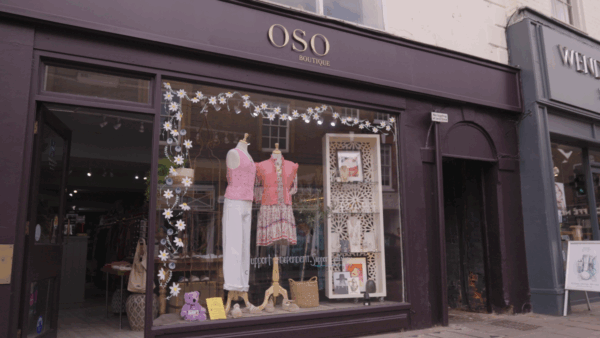Consumers have become increasingly concerned about their environmental impact in recent times and are more likely than ever to avoid companies that show disregard for the natural world. For that reason, it is vital for businesses to invest in their environmental credentials, as Spring and Autumn Fair organiser, Hyve Group, is doing with the Power of One campaign. Trade associations such as GIMA (Garden Industry Manufacturers Association) and bira, have also been doing their bit by working hard to encourage suppliers in their sector to switch to more eco-friendly packaging wherever possible.
As consumer demand drives changes at retail level, buyers sourcing at trade exhibitions have been putting sustainability firmly at the top of their agendas, seeking products that are made from reclaimed or recycled – and recyclable – materials, or organic ingredients. This also raises significant opportunities for products that are made on our home shores in Britain, which haven’t been carted halfway around the world to get here and enable shoppers to support local businesses and economies.
Pictured top is Pipkin and Bella Pet Boutique, as seen on the British Craft Directory. An eco-friendly champion in the pet products market, Pipkin and Bella provides high-quality, artisan, handmade pet grooming products made from organic, vegan and natural ingredients. Mo animal testing, plastics, parabens, artificial colours, preservatives or fragrances are anywhere near these awesome pet products and even the packaging is recyclable.
Here are some of the ways you can invest in the environment:
Review Operations
You can’t figure out how you need to improve until you know what your current operations are. So the first step will be to put the spotlight on the way that you’re currently working. You might find that you can significantly improve your company’s eco credentials just by making a couple of small changes. This will be a relatively straightforward process if you’re a small operation. If you’re a big company with many different elements, then it’ll be more tricky and may require the services of an external consultant.
Highlight Your Good Work
You may already be doing a lot of good work with regard to your environmental impact. If you are, then be sure to let the public know about it! They’re not mind readers, and they’ve come to expect brands to show off their good news. Indeed, if anything, you have to tell your consumers about the steps you’re taking to protect the natural world; if you don’t, then they may assume that you’ve got something to hide, and that’ll actively harm your business.
Going Further
Most companies do at least a little to limit their carbon footprint. But as with everything, there’s always more than that can be done. It used to be that turning off lights when they’re not in use would be enough to signify that you were taking steps to protect the planet. Today, that’s the absolute bare minimum. There are plenty of ways you can enhance and bolster your company’s eco credentials, including working with an urban mineral recovery company, vetting your suppliers to ensure they’re as climate-friendly as you are, and donating money (or time) to environmental organisations. There are always more things you can do; the sky’s the limit!
Keep Up With Industry Standards
Of course, you can’t dedicate all your time towards the environment. There is a business to run, after all. One smart way you can continue to push your company’s environmental credentials forward is by periodically ensuring that you’re keeping up with industry standards. This is a good way to ensure that you don’t fall behind the times, which could cause big problems for your business. No matter what industry you’re in, there will likely be a trade magazine that outlines the environmental progress that other companies are making. All you’ll need to do is take those changes on board.
















